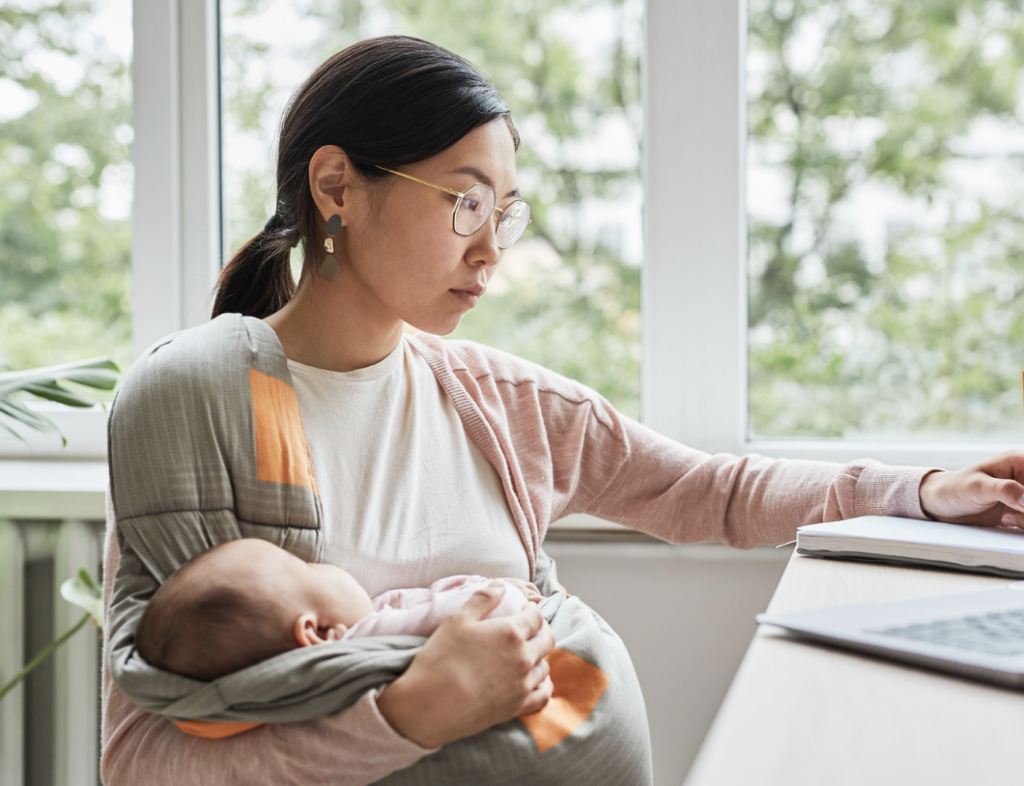Although Germany is known for its robust social security and pension system, navigating it can be particularly challenging for female expats, especially when it comes to understanding women’s pensions in Germany. Women face unique hurdles such as career breaks due to maternity or caregiving responsibilities and the prevalence of part-time work, which can significantly impact pension contributions. In this article, we will explore these challenges and offer key insights about women’s pensions in Germany in order to help female expats secure a stronger financial future.
Gender Disparity in Pension Accumulation
The gender pension gap is a significant issue in Germany, highlighting disparities in women’s pensions in Germany compared to men’s. Statistics show that women’s pensions are, on average, significantly lower than those of men. In fact, according to the Federal Statistical Office (Destatis), women’s retirement income is almost one-third less than men’s.
This gap stems from various factors, including career interruptions, part-time work, and the gender pay gap, all of which contribute to lower pension contributions over a lifetime.
What are the Challenges for women’s pensions in germany?
Career interruptions due to maternity and caregiving
When discussing women’s pensions in Germany, one of the first factors to consider is that, for many women, career breaks due to maternity leave or caregiving responsibilities are often unavoidable. Although maternity leave is well-supported in Germany, with parental leave policies allowing for time off work, these breaks can result in gaps in pension contributions, reducing overall benefits.

Part-time work and its implications
Part-time work is common among women, particularly those balancing family and career. However, part-time employment usually means lower earnings and, consequently, lower contributions to the statutory pension scheme. This can have long-term implications for women’s pensions in Germany, as the lower income from part-time roles generally results in smaller pension payments. Over time, this can significantly affect the pension amount.
Navigating pension contributions as a temporary worker or freelancer
Female expats often take up temporary work or freelance roles, especially when adapting to life in a new country. These employment types may not always include automatic pension contributions, posing a challenge for women’s pensions in Germany and requiring them to take proactive steps to contribute voluntarily.

Strategies for Female Expats to Secure a Stronger Pension
Importance of understanding your pension rights
It’s crucial for female expats to familiarize themselves with national pension laws and their rights, particularly as they relate to women’s pensions in Germany. Numerous resources, including governmental websites and financial advisors, provide valuable information tailored to expats.
Voluntary contributions to the statutory pension scheme
To mitigate the impact of career breaks or part-time work, expats can make voluntary contributions to the statutory pension scheme. These contributions help fill gaps in women’s pensions in Germany and ensure a more substantial pension payout in the future.
Leveraging private pension plans
Private pension plans, such as Riester and Rürup pensions, are excellent options for female expats. Employer-matched pensions can also be a valuable benefit for those working in Germany. Understanding and utilizing these options can bolster retirement savings and enhance women’s pensions in Germany, providing additional security for the future.
Special benefits and programs for women in Germany
Germany offers several programs and benefits to support women in their pension accumulation and facilitate their return to the workforce after career breaks. These initiatives are particularly valuable to improve women’s pensions in Germany:
Child-rearing credits. The German statutory pension system acknowledges time spent raising children by granting pension credits. Parents can receive pension contributions for child-rearing periods, which count towards their future pension entitlements. You can find further information here.

2. Reintegration programs after career breaks. Many women take career breaks to care for children or other family members, which can disrupt pension accumulation. To address this, Germany offers programs and incentives to help women re-enter the workforce. These include retraining opportunities, vocational programs, and subsidies for childcare to ease the transition back into employment. One of these initiatives is the “Perspektive Wiedereinstieg” (Vocational Reintegration as a Perspective), a program promoting initiatives that make it easier for women to return to work and encourages employers to recognize the value of experienced female employees. These programs are particularly effective in supporting women’s pensions in Germany.
3. Support for single mothers. Single mothers, who often face additional financial and career challenges, may benefit from tailored financial assistance programs, tax advantages, and dedicated counseling services. These resources aim to help them balance work and family life while securing their financial future.
4. Fexible working models. Organizations like DIGITALL offer programs such as the “Welcome Back” initiative, providing flexible working hours and remote work opportunities to women restarting their careers after extended breaks. This approach supports work-life balance and eases the transition back into employment, enhancing contributions to women’s pensions in Germany.
5. Pension reforms benefiting mothers. Legislative changes in Germany have increased federal pension credits for mothers, influencing their decisions about working in middle age and enhancing their pension entitlements. These reforms are designed to improve women’s pensions in Germany. You can read more about them on this link.

Tips for Managing Pensions While Living Abroad
- Transferring pensions between countries. Germany has agreements with many EU and non-EU countries to ensure pensions can be transferred or combined, making it easier for expats to maintain continuity in their retirement savings. Check out our article to find out more about Germany’s pension transfer process.
- Avoiding double taxation on pensions. Double taxation agreements help expats avoid being taxed on the same pension income in both Germany and their home country. It’s essential to understand these treaties and their implications.
- Keeping track of multiple pension plans. Expats often have pension plans from various countries. Consolidating these or keeping track of them is crucial to avoid losing out on entitlements.
In conclusion, understanding women’s pensions in Germany is crucial for female expats to navigate the complexities of the German pension system effectively. From career breaks to part-time work, several factors can impact pension accumulation, but with the right knowledge and planning, women can secure a stronger financial future. We highly advise you to consult a pension expert if you need personalized assistance. Feel free to reach out to us here. We also have a live chat feature available on every page! If you have any questions, just click to start a conversation, and our team will be happy to assist you shortly.
What our clients say about our services







Navigating the German Pension System: A Must-Know for Expats
As an expat in Germany, one of the most important aspects of long-term financial planning is understanding how the country’s pension system works. The German

Riester Rente in Germany: Is It a Good Option for Expats?
If you’re an expat living and working in Germany, planning for retirement can be confusing. The Riester Rente in Germany can be a good option to

Retirement in Germany for Expats: Understanding Pensions and Insurance
Germany is becoming an increasingly popular destination for retirees from around the world. With its high-quality healthcare system and strong, stable economy, it offers a

Pension Options for Short-Term Expats in Germany: Smart Planning
Many expats working in Germany on temporary assignments overlook pension planning, assuming it’s irrelevant for short-term stays. However, Germany’s pension system offers benefits even for

Germany’s Company Pension Scheme (bAV) – The Ultimate Guide
Germany offers a strong pension system, and for expats, understanding the Betriebliche Altersversorgung (bAV) or company pension scheme is crucial. In this article, we will

Voluntary Contributions to the German Pension System: Worth It?
The German pension system is a fundamental part of the country’s social security system, offering those who contributed to it financial stability and a secure
Secure your future abroad with tailored insurance & pension plans
Get expert advice on the best solutions for expats – personalized to fit your unique needs. Start planning today!
